
May 10, 2017
| Quick Links | |||||||||||||||||
Grants and Funding Opportunities
| Lab 360 |
Seminars and Events
| |||||||||||||||||
|
|
|||||||||||||||||
News |
|||||||||||||||||
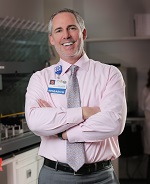 |
Director's Column - The Annual Scientific Symposium: Celebration of Our Research Progress by Dr. Tom SellersMay 4 was my best day of the year, so far. It was a day of scintillating science, dynamic presentations, fascinating posters, social exchanges with colleagues old and new, and the opportunity to meet new team members and stimulate new collaborations. All of this without a single meeting to attend, conference call, or form to sign. Maybe we can start doing this more than once per year?
For those of you who missed the event, or missed parts of it, I encourage you to block out your calendar for next year's meeting - May 9, 2018. That invitation goes to everyone at Moffitt, not just those involved solely or partly in research. With our culture, it doesn't seem appropriate to talk about the "clinical side" or the "research side" but rather something like "offense" or "defense." We're all one team. Research is enabled by the clinical practice, and the clinical practice is informed by research. We estimate that there were around 500 people in attendance and it is amazing to share the energy and scientific discovery so broadly. While we are almost certainly going to need a larger venue to house the event , that is one wonderful problem we want to have! If you attended, the event coordinators would like you to take this quick survey to provide feedback and ideas for improvements. Symposium Videos: 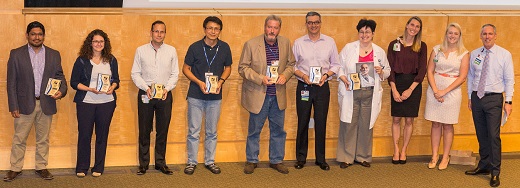
Miles For Moffitt Awardees: (Left to
right) Drs. Marco Davila, Gina DeNicola,
Heiko Enderling,
Jia Fang, John Heine, Alvaro Monteiro and Martine Extermann. The awards were handed out by Foundation coordinators Rachel Fredrick and Allison Fonner, as well as Dr. Sellers. | ||||||||||||||||
|
| |||||||||||||||||
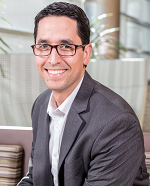 |
(NEW) Signals Spotlight: Brian Gonzalez, PhDDr. Gonzalez is an assistant member of the Health Outcomes and Behavior Program. His research focuses on reducing the burden of quality of life issues, such as sleep disturbance, cognitive impairment and fatigue, faced by cancer patients and survivors.While you are a newer faculty member at Moffitt, you are no stranger to the institution. How did you first become involved with Moffitt? While I attended graduate school at University of South Florida in clinical psychology, I was fortunate enough to be mentored by Dr. Paul Jacobsen, former Associate Center Director of Population Science. This is how I first became involved with cancer research at Moffitt. I conducted both my master's thesis and doctoral dissertation studies with the gracious support of the Thoracic Oncology Program. I came to be amazed by the access and opportunities that the clinical faculty allowed me, a lowly graduate student, to their clinic, their patients, and their time. This is when I began to realize what a special place Moffitt is, in no small part because of how collaborative the environment is. After completing my degree and receiving offers for postdoctoral fellowships across the country, I eagerly accepted a position as a postdoctoral fellow with Dr. Heather Jim in the Health Outcomes and Behavior Program. My two years in this position only served to solidify my appreciation for the exceptional patients we serve here and the close collaborations between faculty in various clinical and research areas. What made you want to come back to Moffitt? I was sad to leave after completing my fellowship, but I was glad to head off to a tenure-track faculty position at another NCI-designated Comprehensive Cancer Center. After about a year passed, an opportunity arose to perhaps return to Moffitt. I couldn't resist the chance to come back, join the other faculty conducting cutting-edge science, and begin improving patients' lives. By then it had become very clear to me how unique Moffitt was in terms of its research emphasis, collaborative environment, excellent leadership, and access to a large patient population eager to take part in clinical research. In fact, I always knew I was going to return. I just never imagined I'd get the chance so soon. Why did you choose science, specifically cancer research, as a career? We have all had loved ones who've been touched by cancer. I remember being struck by the huge quality of life burden that cancer patients and survivors face. In many cases, the quality of life issues caused by cancer or as side-effects of treatment are treatable or preventable. I resolved to improve the quality of life of cancer patients and survivors by preventing quality of life issues where we can and reducing the impact on those issues that have already arisen. How is technology helping you advance your research and help improve the quality of life for cancer patients? In many ways. Not too long ago it was astronomically expensive to genotype even a handful of patients. But only a few years ago we were able to genotype hundreds of patient, enabling us to find genetic predictors of cognitive impairment and hot flashes in prostate cancer patients. Objectively measuring patients' sleep used to require an overnight sleep study, a very inconvenient and labor-intensive process. Now we can simply ask them to wear a small device on their wrist that looks just like a smartwatch. This is helping us predict which patients are at greatest risk of sleep disturbance and measure the effectiveness of interventions to address sleep disturbance. And monitoring patients' symptoms once relied on patients to 1) understand that they were experiencing a significant issue and 2) call in to schedule a last-minute appointment in a busy clinic. Some clinics set up automated phone trees for patients to call into in order to figure out whether the symptom needs to be addressed. In other words, we're still in the flip-phone era for monitoring patients' symptoms. Drs. Scott Gilbert, Heather Jim, and I are taking us to the smartphone era by developing a mobile health platform that allows patients to answer a few simple questions every few days using their smartphones or tablets. If they wish, they can even share their temperature, blood pressure, and weight via Bluetooth-enabled devices. Will you be participating in Miles for Moffitt on Saturday? Why is it important for fellow researchers to get involved in this event? Yes I will. My family and I will be participating as virtual walkers on Saturday. It's critical that researchers not only get involved but take the lead in Miles for Moffitt. After all, the goal of this event is to raise funds for cancer research. As scientists, we should be at the forefront of ensuring that the public is aware of and contributes to the mission of the Moffitt Cancer Center. | ||||||||||||||||
|
| |||||||||||||||||
 |
(NEW) Appropriations Act and Award NoticesAs you may already know, the 2017 Appropriations Act was signed by President Donald Trump on Friday, May 5. Moffitt is expecting revised Notices of Award (NOA) for approximately 15 NIH grants issued while the Continuing Resolution (CR) was in effect. We have been in regular contact with our Grants Management Office (GMO) Specialist at NIH regarding the reduced funding level for the last few months. We know that as soon as they receive approval to do so, NIH will issue revised NOAs restoring CR funding back to the 100% level. We have been assured that this will be done without prompting and as quickly as possible. When OSR has the NOA in hand, we will process the revision and forward the information to our colleagues in Research Finance so that the impacted budgets can be increased appropriately, and they will notify your Research Financial Analyst. Please note, however, we have also been told that the NOAs to restore funding will take a lower priority to new funding and annual continuations. The GMO is interested in making sure new funds are issued as quickly as possible and those issued under CR should have ample funds for operations in the meantime. OSR will continue to monitor and follow up on awards that need revised NOAs until we have resolution for all of them. We are communicating very purposely knowing that the more we contact NIH about each award, the more we can potentially slow down the process.
If you have any questions, please contact
Margaret Fonner,
x6519.
| ||||||||||||||||
|
| |||||||||||||||||
 |
(NEW) Research Staff Refresher CourseJoin us on May 23 for a research staff refresher course. This is mandatory for all Population Science research staff that work with protected health information; however, anyone can attend.It is an one hour meeting that will go over the following: • Translation and interpreting for non-English speaking patients • How to protect protected health information in a modern world (fax, email, etc.) • What to do if your participant is unable to physically sign or has a proxy • Best practices on protecting participant information
For more information, please contact Nina Nass. | ||||||||||||||||
|
| |||||||||||||||||
 |
(NEW) Population Science NewsletterThe May 2017 newsletter is now available.Newsletter | ||||||||||||||||
|
| |||||||||||||||||
|
|
Certified Effort Reporting Process UpdateThis month, an upgrade will be made to Lawson to provide an enhanced feature for routing action oriented items, such as the certification of effort reports. It will allow us to improve the delivery of effort reports, as well as how the effort certifier action items are performed. This upgrade will likely occur May 15, though it may be a few days after that. The upgraded version of Lawson will allow the certifier to receive his or her effort report through email, and the ability to approve or indicate further review is needed directly from the email message. To ensure security surrounding this process when the action item is selected, a prompt will appear so that the certifier can enter their network username and password. The process is developed so that only the user with the appropriate access can perform the action item. If a certifier forwards their effort reporting email to another individual that person will not be able to perform the action item associated with the effort report. We were also able to provide some aesthetic changes to the effort report to hopefully provide the certifier with more meaningful information. This enhanced delivery will minimize many of the Internet Explorer issues and problems experienced by MAC users utilizing the Safari web browser. We will provide more information as soon as the Lawson upgrade has been confirmed. We are very excited about this improvement, which will make effort certification easier. | ||||||||||||||||
|
|
|||||||||||||||||
Grants and Funding Announcements |
|||||||||||||||||
|
|
NIH Director's Early Independence Award for Exceptional Junior ScientistsThe National Institutes of Health has announced the NIH Director's Early Independence Awards funding opportunities for exceptional junior scientists to accelerate their entry into an independent research careers by forgoing the traditional post-doctoral training period. This is a restricted submission and requires a Moffitt pre-application due on June 1 at 4:00 p.m. The final submission to NIH if selected by Moffitt is September 22.Eligibility Requirements: • Candidates must have completed their degree or residency within one year of application date. • Candidates must not be in an independent position. • Candidates must have received a PhD, MD, DO, DC, DDS, DVM, OD, DPM, ScD, EngD, Dr PH, DNSc, ND, PharmD, DSW, PsyD, or equivalent doctoral degree from an accredited domestic or foreign institution. The pre-application must include a one page letter of introduction and a two-page research outline in PDF format. For more information, contact Maureen Ahearn, x8824. | ||||||||||||||||
|
| |||||||||||||||||
|
|
Dresner Foundation Myelodysplastic Syndromes Research FundThis program supports cutting-edge MDS research and related programs that will lead to the future standards of care and ultimately cure by facilitating the advancement of innovative basic science, translational or clinical research.
| ||||||||||||||||
|
| |||||||||||||||||
 |
Chotiner Pediatric Research Pilot Funding OpportunityMoffitt leadership is pleased to announce a pilot funding opportunity focused on pediatric cancer with preference given to proposals in sarcoma or a focus on adolescent and young adults. This opportunity is open to all Moffitt faculty ranks. The maximum award amount is up to $60,000 for 12 months.This competitive opportunity requires the submission of a brief proposal consisting of: • A face page that includes a one paragraph scientific abstract • A two-page description of the research plan • A one page budget and budget justification for the 12 month period • NIH biosketch, including a list of pending and funded grants Face Page Template | Grant Guidelines Submission deadline is June 1, 4:00 p.m. Please submit your proposal and biosketch to Maureen Ahearn, x8824. | ||||||||||||||||
Research Lab 360: Cores, Labs, and Space |
|||||||||||||||||
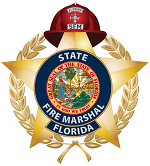 |
(NEW) Clear Eyewash Stations for Annual Fire Marshal VisitThe State Fire Marshal is expected to inspect Moffitt June 6-8. Both of the recessed eyewash stations on MRC3 and MRC4 need to be cleared of all coffee and tea cups, food, and supplies. There are two breakrooms available at the east and west ends of the hallway to keep these items. Thank you for your cooperation. | ||||||||||||||||
|
| |||||||||||||||||
 |
(NEW) LRO Research PagerResearch Environmental Health and Safety has one of its team members on call 24/7/365 to assist with after-hours emergencies (i.e., spills, -80C freezer issues, etc.). In order to reach the on call team member, please dial 813-256-4646 and follow the verbal prompt to enter a phone number or numeric message and then press the pound sign to send the information. The team member will respond within 30 minutes of receiving the page. If no response is received, please call Moffitt Security at 813-745-8022. | ||||||||||||||||
|
| |||||||||||||||||
 |
Research 360 Project Updates
| ||||||||||||||||
Seminars and Events |
|||||||||||||||||
|
|
Cancer Epidemiology Program Teas, Contact
Suellen Sachariat
The CE Teas provide an informal setting for discussion of a spectrum of topics (e.g., novel research ideas, troubleshooting, the latest published findings, obstacles to the scientific/academic process, others' ongoing research). The series has met with success and as a result several additional teas have been added.
|
||||||||||||||||
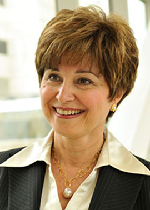 |
(NEW) May 11 -
Clinical Science Grand Rounds,
Contact Pamela Huntley Maha Hassain, MD, Associate Director for Clinical Sciences Research, Robert H. Lurie Comprehensive Cancer Center of Northwestern University, Chicago, IL Prostate Cancer Translating Biology into Therapeutics: How Precise and Personal? 8:00 - 9:00 a.m., Stabile Research Building, Ferman Family Conference Room (Breakfast will be served) Calendar | Flyer |
||||||||||||||||
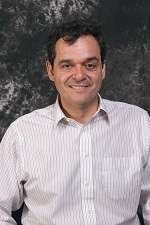 |
May 11 - Grand
Rounds in Population Science (GRIPS), Contact
Christine Abel Jonas Almeida, PhD, Professor, Chief Technology Officer, Department of Biomedical Informatics, Stony Brook University (SUNY), Stony Brook, NY Data in the Cloud, Analyze Thyself 11:30 a.m. - 12:30 p.m., Stabile Research Building David Murphey Conference Room Learn more about Dr. Almeida | Calendar |
||||||||||||||||
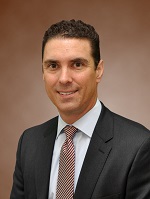 |
May 12 - Lung
Cancer Center of Excellence Guest Speaker, Contact
Irene
Deleon-Dudas Robert Doebele, MD, PhD, Associate Professor of Medicine in the Division of Medical Oncology at the University of Colorado School of Medicine, Anschultz Medical Campus, Aurora, CO Early Adaptive Resistance Mechanisms to Oncogene-targeted Therapy 2:30 - 3:30 p.m., Stabile Research Building David Murphey Conference Room Learn more about Dr. Doebele | Calendar |
||||||||||||||||
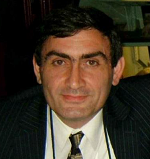 |
May 17 - Basic
Science Grand Rounds, Contact
Shonda Sterner David A. Goukassian, MD, PhD, Principal Investigator, Center for Translational Medicine, Temple University School of Medicine; Associate Professor of Medicine and Dermatology, Boston University School of Medicine, Boston, MA Making Cancer Defenseless Against Its Own Immune Molecule TNF-a- Teaching the Tumor to Kill Itself 12:00 - 1:00 p.m., Stabile Research Building, David Murphey Conference Room (Lunch provided to the first 75 attendees) Calendar | Flyer |
||||||||||||||||
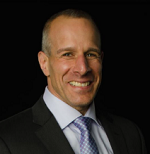 |
May 18 -
Postdoctoral Affairs Career Development Seminar,
Contact Shonda Sterner Joshua Henkin, PhD, Career Counselor and Founder, STEM Career Services, Arlington, VA Creating a Powerful Resume - Inside Tips from a PhD Hiring Manager 9:30 - 11 a.m., Stabile Research Building, Ted and Mary Couch Auditorium Calendar | Flyer May 19 - Postdoctoral Affairs Career Development Seminar, Contact Shonda Sterner Joshua Henkin, PhD, Career Counselor and Founder, STEM Career Services, Arlington, VA Leveraging LinkedIn - Attracting Recruiters and Finding the Best Jobs 11:00 a.m. - 12:30 p.m., Stabile Research Building, Ted and Marty Couch Auditorium Calendar | Flyer |
||||||||||||||||
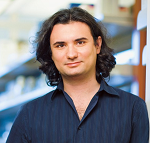 |
May 19 -
Basic Science Guest Speaker, Contact Yvette Mieles Andrea Ventura, MD, PhD, Associate Member, Cancer Biology and Genetics Program, Memorial Sloan Kettering Cancer Center, New York, NY Cancer Modeling in the CRISPR Age 2:00 - 3:00 p.m., Stabile Research Building, David Murphey Conference Room Calendar | Flyer |
||||||||||||||||
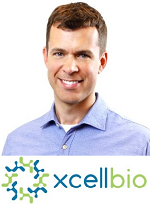 |
(NEW) May 23 - Basic
Science Guest Speaker, Contact
Yvette Mieles Bruce Adams, PhD, Director of Research and Development, Xcell Biosciences, San Francisco, CA Avatar™: A Novel Cell Culture System for Control of Microenvironmental Oxygen and Pressure 10:30 a.m. - 11:30 a.m., Stabile Research Building, Ferman Family Conference Room Calendar | Flyer |
||||||||||||||||
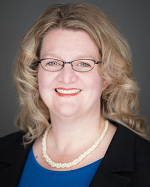 |
(NEW) May 24 - Post
Doctoral Affairs Career Development Seminar, Contact
Shonda Sterner Tracy Costello, PhD, Director, Office of Postdoctoral Affairs, Moffitt Cancer Center, Tampa, FL Maximize your Postdoc Experience with an Individual Development Plan 11:00 a.m. - 12:30 p.m., Stabile Research Building, David Murphey Conference Room Calendar | Flyer |
||||||||||||||||
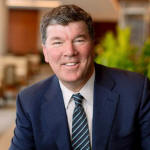 |
May 25 -
Experimental Hematology Seminar Series, Contact Jill Cass Keith Stewart, MB, ChB, Carlson and Nelson Endowed Director Center for Individualized Medicine Vasek and Anna Maria Polak Professor of Cancer Research, Mayo Clinic College of Medicine, Rochester, MN Towards Individualized Myeloma Therapy 12:00 - 1:00 p.m., Stabile Research Building David Murphey Conference Room Lunch provided to the first 50 attendees Learn more about Dr. Stewart | Calendar | Flyer |
||||||||||||||||
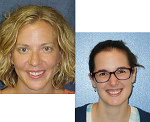 |
June 6 -
Population Science Research Series, Contact
Nina Naas Lori Kirchoff and Caitlin McNally, Regulatory Specialists, Moffitt Cancer Center, Tampa, FL Regulatory in Observational Trials 12:00 - 1:00 p.m., Stabile Research Building Ferman Family Conference Room Calendar |
||||||||||||||||
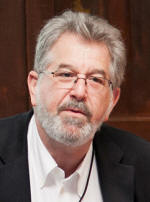 |
June 8 - Grand
Rounds in Population Science (GRIPS), Contact
Christine Abel Kenneth W. Goodman, PhD, FACMI, Director, Institute for Bioethics and Health Policy, Co-director, UM Ethics Programs, University of Miami, Miami, FL Title to be announced 11:30 a.m. - 12:30 p.m., Stabile Research Building David Murphey Conference Room Learn more about Dr. Goodman | Calendar |
||||||||||||||||
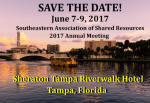 |
June 7
- 9: Southeastern Association of Shared Resources (SEASR) 2017
Annual Meeting The purpose of the Southeastern Association of Shared Resources (SEASR, pronounced "Caesar") is to provide a regional forum for core directors, managers, scientists, and technical staff to meet, discuss and collaborate on the many common issues that face us. The topic areas include, but are not limited to, facility management, efficient laboratory practices, biotechnology advances and applications, federal and financial oversight, and emerging issues facing cores. This year the meeting is being held at the Sheraton Tampa Riverwalk Hotel, Tampa, FL. Website |
||||||||||||||||
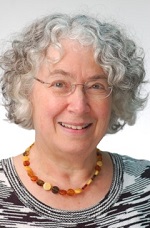 |
June 9 - Cancer
Biology Student Organization Sponsored Research Seminar,
Contact Cathy Gaffney Suzanne Ostrand-Rosenberg, PhD, Professor of Biological Sciences, Robert & Jane Meyerhoff Chair of Biochemistry, University of Maryland, Baltimore County, Baltimore, MD Schizophrenic Myeloid-derived Suppressor Cells: Their Role in Cancer, Obesity and Pregnancy 12:00 - 1:00 p.m., Stabile Research Building, David Murphey Conference Room (Lunch provided for the first 70 attendees) Calendar | Flyer |
||||||||||||||||
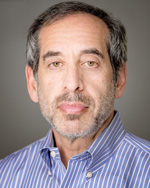 |
June 17 -
Hematopathology Educational Symposium, Contact
Maria
Christophilopoulos Bruce Wenig, MD, Senior Member, Anatomic Pathology Department, Moffitt Cancer Center, Tampa, FL Head and Neck Lymphoma and Mimickers 9:00 a.m. - 1:30 p.m., Moffitt Clinic Building, Owl's Den Conference Room (Lunch will be served) Calendar | Flyer Call for Cases: The symposium organizers are looking for interested head and neck hematopoietic lesions (benign and malignant) to discuss. Accepted cases will be presented in a short case presentation format including history, histology, pertinent points and possible pitfalls. Please submit a brief description of your interesting case to Ling Zhang, MD or Elizabeth Sagatys, MD by May 12. Authors of selected cases will be notified by May 16. |
||||||||||||||||
Funding Flash
NIH Standard Due Dates
grants.gov
NCI Funding Opportunities
NIH Guide to Grants & Contracts
News
NIH Research Matters
The Cancer Letter
NIH News & Events
Federal Register
Science 360 News
Proposal Submission Form
Moffitt Boilerplates
Grants.gov Instructions
PHS398 Instructions
NIH 2590 Instructions
PubMed
National Cancer Institute
MRI Intranet Page
MRI Signals Index Page
Clinical Research
Who To Call
DSMP
Liberty IRB
USF IRB
Clinical Trials.gov Process
NCI Investigator Registration Process
Questions? MRISignals@moffitt.org
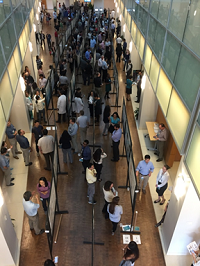 In case you couldn't tell from the introduction to this column, we had another stellar Moffitt Scientific Symposium last week. Thanks and appreciation goes to Drs. Doug Cress and Jonathan Zager
- the co-chairs of the event - as well as the dedicated program committee members (all 15 of them), the event coordinators (Rae Reuille and Angie Reagan), and the many volunteers who worked behind the scene to make it a success. I'd like to give a big shout out to the faculty, trainees and staff for sharing their work in progress, and for creating the excitement through their research ideas and commitment. The event this year built upon the successful script of previous years: a mixture of invited talks by faculty, platform presentations by the highest-ranked abstracts, two poster presentations (necessitated by the 151 posters that turned the SRB atrium into a rather cozy venue) and the keynote presentation by Dr. Scott Antonia as the W. Jack Pledger Researcher of the Year. Somehow the program committee managed to feed everyone between the poster sessions. If we can do that there is no reason why we can't prevent and cure cancer, right? As the afternoon moved from science to celebration, we announced the winners of the
In case you couldn't tell from the introduction to this column, we had another stellar Moffitt Scientific Symposium last week. Thanks and appreciation goes to Drs. Doug Cress and Jonathan Zager
- the co-chairs of the event - as well as the dedicated program committee members (all 15 of them), the event coordinators (Rae Reuille and Angie Reagan), and the many volunteers who worked behind the scene to make it a success. I'd like to give a big shout out to the faculty, trainees and staff for sharing their work in progress, and for creating the excitement through their research ideas and commitment. The event this year built upon the successful script of previous years: a mixture of invited talks by faculty, platform presentations by the highest-ranked abstracts, two poster presentations (necessitated by the 151 posters that turned the SRB atrium into a rather cozy venue) and the keynote presentation by Dr. Scott Antonia as the W. Jack Pledger Researcher of the Year. Somehow the program committee managed to feed everyone between the poster sessions. If we can do that there is no reason why we can't prevent and cure cancer, right? As the afternoon moved from science to celebration, we announced the winners of the
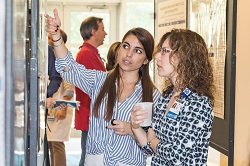 The Scientific Symposium is important for a number of reasons. It embodies our mission, and showcases progress at the bench, at the bedside and in the community as we bridge basic, translational, clinical and population science. The structure of the sessions and the intermingling of posters reinforce our respect for all scientific disciplines and value for multidisciplinary collaboration. As busy as we all are, it is important to hit the pause button once in a while to reflect on and celebrate the incredible work that is emerging from this institution. Stopping to look in the mirror and catch one's breath can invigorate the mind and body for the road ahead. Last but not least, having the research community come together creates the opportunity to learn of research going on here that may be complementary to your own, to get inspired with new ideas and directions, and to make new friends among your colleagues. It was personally very rewarding to hear first-hand of new collaborations that were formed as a result of the symposium.
The Scientific Symposium is important for a number of reasons. It embodies our mission, and showcases progress at the bench, at the bedside and in the community as we bridge basic, translational, clinical and population science. The structure of the sessions and the intermingling of posters reinforce our respect for all scientific disciplines and value for multidisciplinary collaboration. As busy as we all are, it is important to hit the pause button once in a while to reflect on and celebrate the incredible work that is emerging from this institution. Stopping to look in the mirror and catch one's breath can invigorate the mind and body for the road ahead. Last but not least, having the research community come together creates the opportunity to learn of research going on here that may be complementary to your own, to get inspired with new ideas and directions, and to make new friends among your colleagues. It was personally very rewarding to hear first-hand of new collaborations that were formed as a result of the symposium.